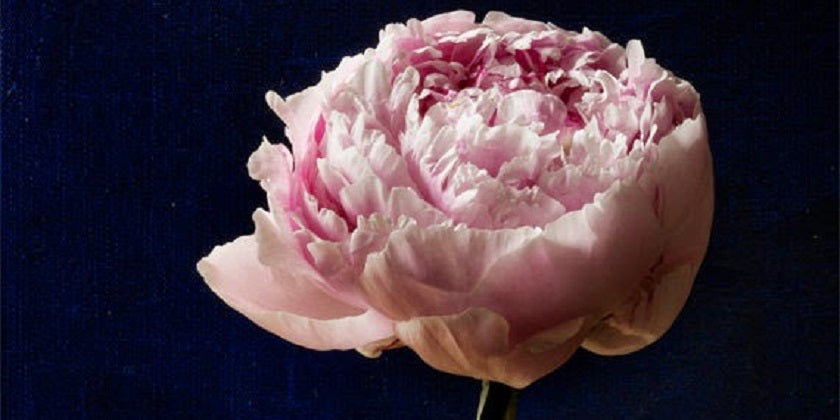Most women in China believe that it is imperative that they take certain precautions to manage their menstrual cycles. Many, perhaps most, women in the U.S. treat their menstrual cycles as biologically pre-determined. Good or bad, painful or not, short or long, American women tend to think the nature of a woman’s cycle is an act of fate.
I had been aware of, but perhaps had not fully appreciated, the depth of these cultural differences between the U.S. and China's approaches to women's health until a few years ago when I was chatting with a Chinese friend about her experiences living in the U.S. She had originally trained to be a doctor of Chinese medicine in Beijing, but then left the profession to earn a Ph.D. in Anthropology in the U.S.
I wondered if she regretted studying Chinese medicine. She emphatically said no. Studying Chinese medicine and herbs had helped her become even more aware of how she could manage her everyday health. “For example, it is really important to not eat cold foods during one’s period and to ‘rest for a month’ after you give birth to a baby. My American friends,” she said shaking her head, “don’t understand even this basic kind of knowledge.”

Hot and Cold, Deficiency and Excess
What are the basics of gynecological knowledge and postpartum care that Americans are so deeply ignorant of? To explore these topics, we need to grasp some of the fundamental concepts of Chinese medicine: hot and cold, deficiency and excess. These four terms describe basic pathological states that must be addressed in any gynecological treatment in Chinese medicine. Many of the more complex situations are best handled by a trained doctor of Chinese medicine doctor, but there are indeed many things women can do, from diet to herbs, to improve their gynecological health.
The concepts of “hot” and “cold” as pathological conditions seem utterly foreign to the average American. Yet before the advent of modern medicine in the 19th century, they would have been common sense medical terms in both Europe and the New World. (They were key concepts in the Galenic system of humoral medicine, which had been the dominant medical paradigm in Europe for centuries.) These terms are also used to refer to qualitative state of all foods. The hot and cold nature of food is distinct from than the physical temperature of the food, but the two states can mutually reinforce each other.
Consuming Cold Foods During Your Cycle
My friend, and many Chinese women in general, are concerned about consuming “cold foods” just before or during their menstrual cycle. The reason is that “cold” has the property of contracting and obstructing. The key to a happy and manageable menstrual cycle is maintaining the proper flow and discharge of menstrual blood. (The quantity should be neither too much or too little, the color neither too dark or too bright. Clotting should be minimal or nonexistent.) Cold foods or exposure to physical cold, particularly at the time of one’s menstrual cycle, can cause painful menstrual cramps and in certain situations lead to ongoing gynecological issues.
“Although many of us grew up thinking there was nothing more natural than drinking carbonated sodas in cups of crushed ice, this habit would horrify many Chinese people.”
Most Americans couldn’t begin to identify which foods are “hot” or “cold.” But we can start by avoiding things that are physically cold. Although many of us grew up thinking there was nothing more natural than drinking carbonated sodas in cups of crushed ice, this habit would horrify many Chinese people. Ice and even chilled foods taken straight out of the refrigerator can be hard on the digestive system.
I have found in my clinical practice that almost all of my patients with chronic gastritis of one form or another have come to understand this basic nugget of Chinese wisdom. For these individuals, physically cold foods will exacerbate their stomach pains, and they have all learned to drink water and beverages at room temperature.

The logic is the same for menstrual cramps. Not every individual will suffer, but some will be very vulnerable. For this same reason, women should exercise caution about exposure to any kind of physical cold around the time of their menstrual cycle. Chinese women also know to avoid foods that are qualitatively cold. These food are generally ones that are hard to digest, such as many raw vegetables, particularly items in the Brassica genus, like cabbage, broccoli, kale, etc.
But some of you will object: I eat primarily raw vegetables, drink ice water to my heart’s content, swim in cold mountain lakes all the time and never have a painful period. Yes, some women don’t seem to be as vulnerable as others, but that doesn’t invalidate the principles in general. To understand why, we need to discuss our next two concepts: deficiency and excess, which we’ll cover in How New Chinese Mothers Handle Postpartum: Understanding Deficiency and Excess.
These statements have not been evaluated by the Food & Drug Administration. None of the above is intended to diagnose, treat or cure any disease.












,_LAc_96x96.jpg?112850)



